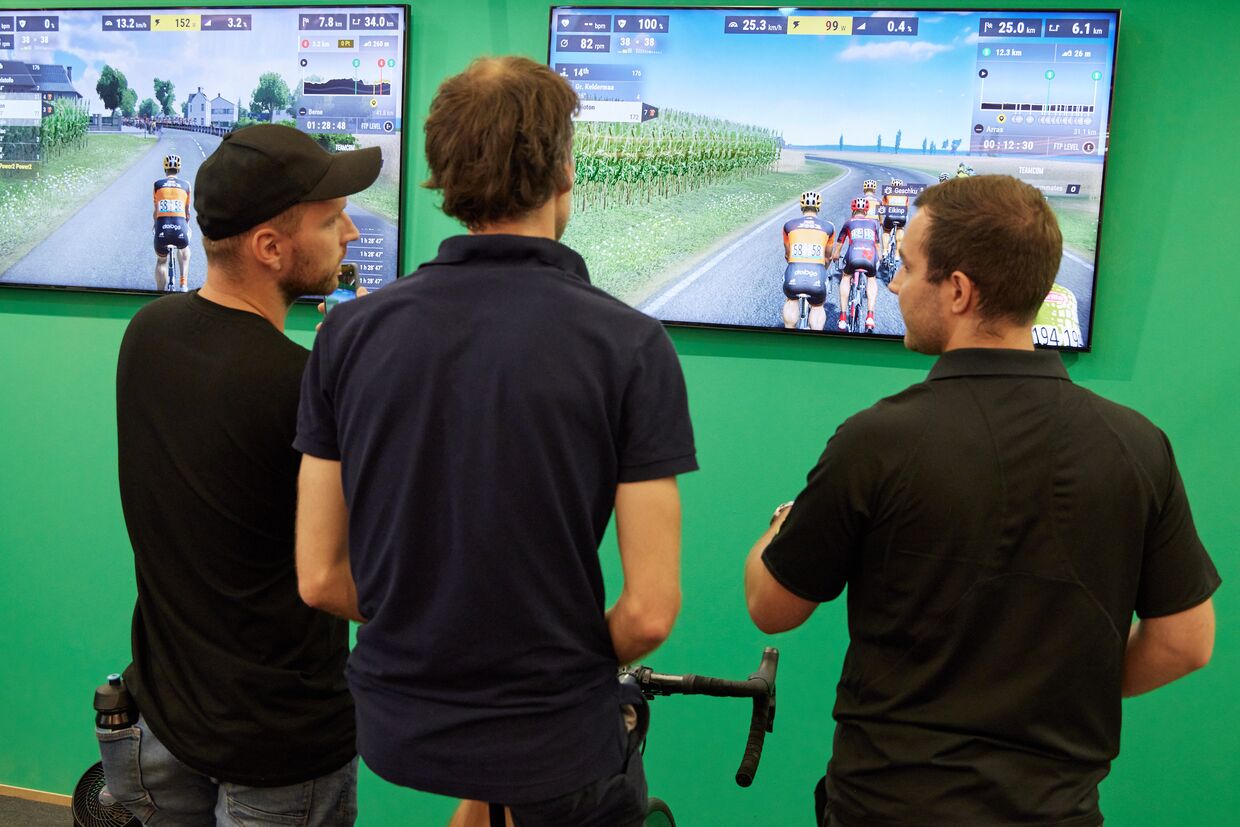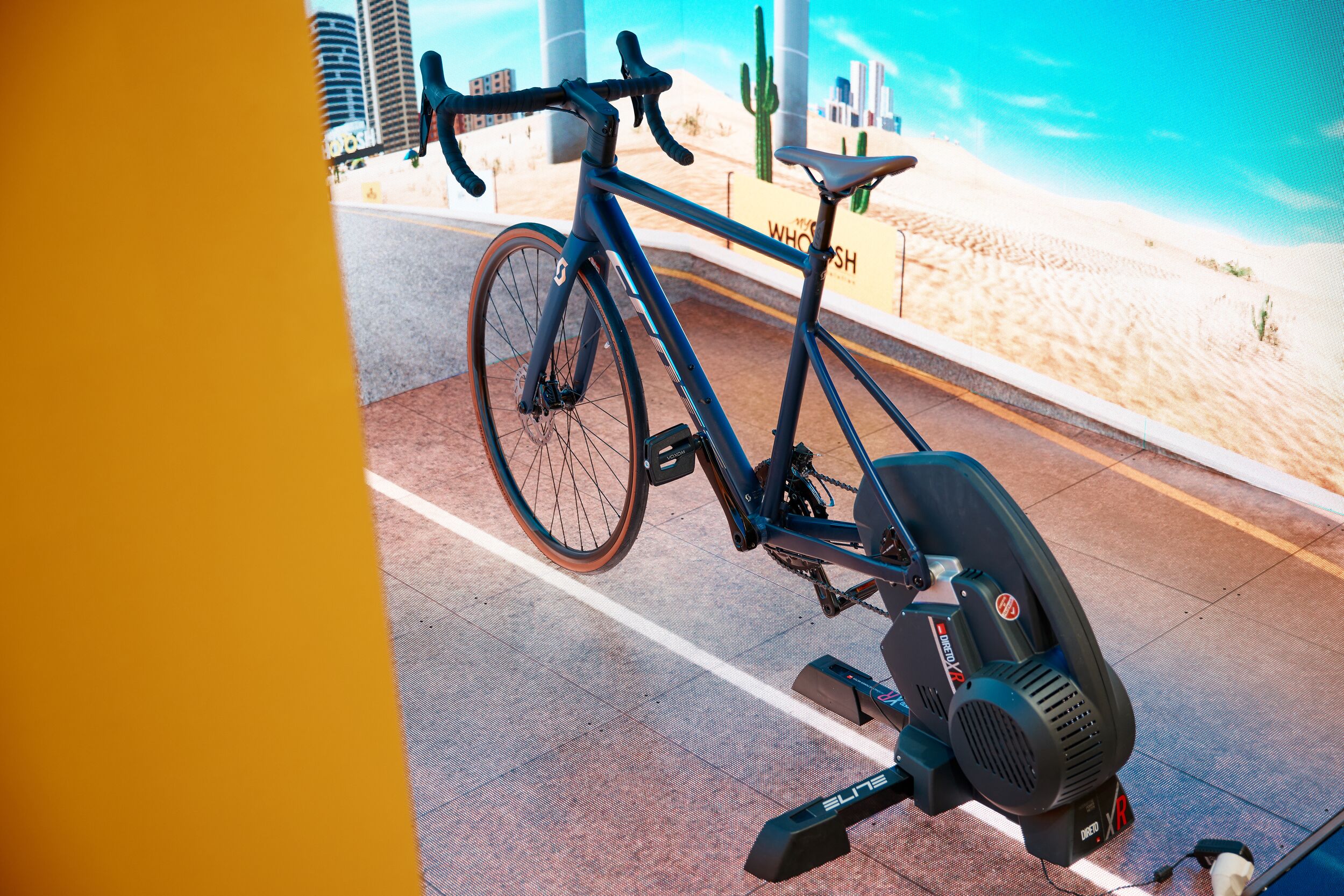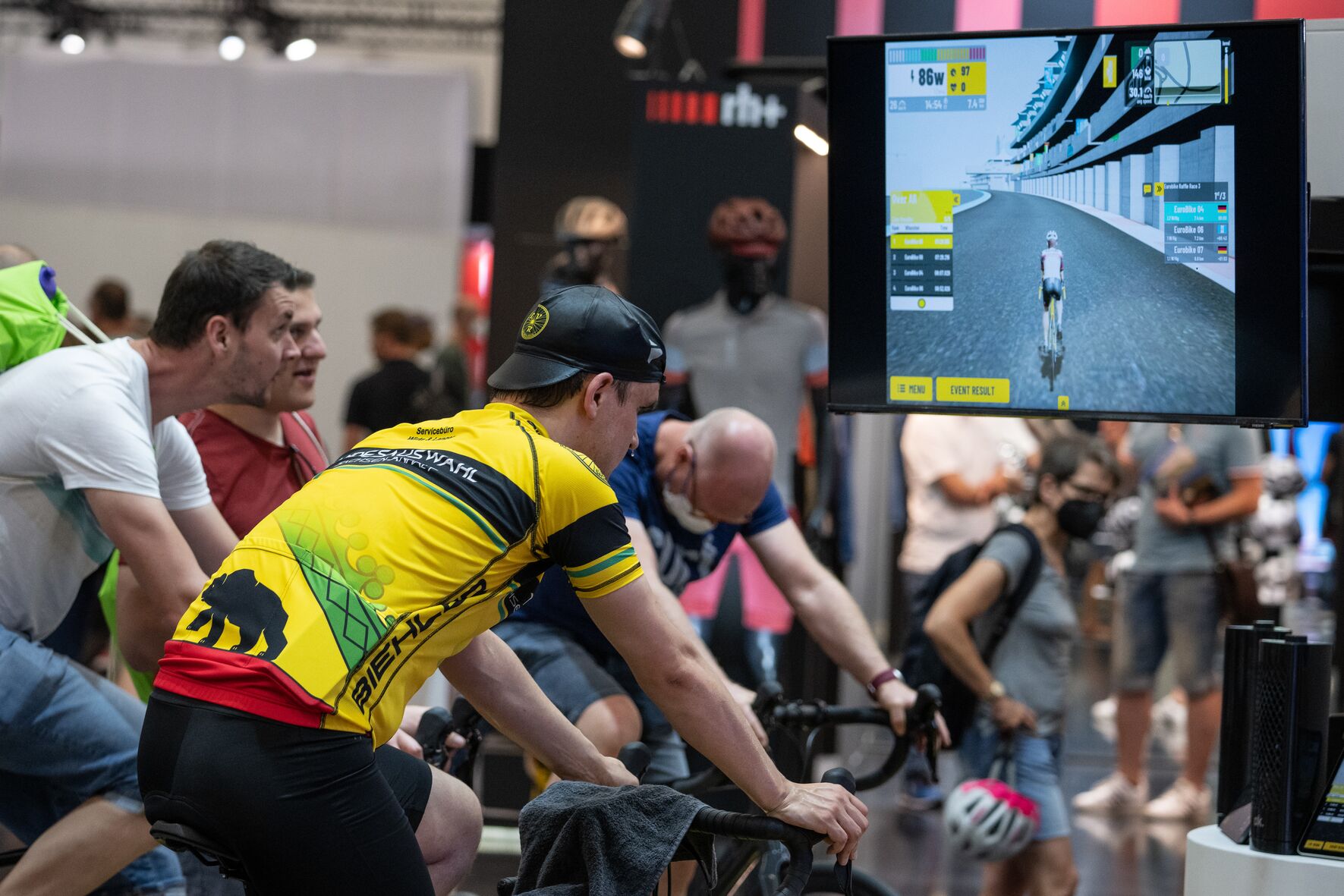In August 2019, the UCI revealed that it would launch the first UCI Cycling E-Sports World Championships in 2020 on Zwift, a digital training and racing platform. The company is market leader for virtual cycling. Around the world, some 1.4 million “Zwifters” meet up to train or take part in virtual races. Zwift offers UCI World Road Championships courses, including the Yorkshire Course from 2019, as well as a wide range of classic races, all to be raced at home in the living room or dedicated training area. The secret behind the company’s success: combining serious indoor training with virtual gaming.

“Virtual cycling is not a classic e-sport, it’s a physical e-sport that requires the same physical exertion as conventional riding. Those hated turbo trainers once used by people alone in their cellars have now been transformed into a lifestyle product nearly as important as bikes,”
- Kai Rapp, Key Account Manager DACH for German-speaking countries at Zwift
Sustainability and accessibility are both important driving factors for Zwift. The platform is open to all ages. Everyone, including younger and older riders, has the opportunity to compare themselves virtually to top athletes or try out new routes without the logistical implications. This is creating new opportunities – including for bike manufacturers.
“E-sport is far more than a new marketing level – we’re convinced that this new type of sport is inspiring even more people to get passionate about bike riding.”
The Koblenz-based bike maker launched its own e-racing team in 2018, as the first major industry player. “We wanted to be pioneers,” notes Thorsten Lewandowski and adds with a grin: “Anyone who starts indoors, is likely to go on and ride outdoors.” Here the direct online seller is harnessing digital networking opportunities to lead customers to the right product. However, Canyon has no plans to offer pure indoor bike for this overlapping sector: “That would limit opportunities.” Other manufacturers are also seizing the online possibilities. For example, Specialized now sponsors the Zwift Triathlon Team. Riders can measure themselves online with different criteria, in the “Zwift Academy Tri” and the best riders are rewarded with a new bike and exclusive benefits, including wind tunnel testing and performance analysis. The ultimate goal is to be selected to participate in the Ironman World Championships in Hawaii.
"We also encourage our road and MTB teams to train using Zwift."

Zwift is currently the undisputed champion on the virtual cycling market. Although, other suppliers are gaining momentum. There is the Spanish indoor cycling company Bkool, which has recently moved away from offering training hardware to focus solely on software, the Road Grand Tours software solution and the smart trainer provider Tacx. The challenge remains the same for all industry players. Namely, to provide an offer that makes virtual cycling more than just winter training. A successful example of this is the “KISS Super League” which was held for the first time in 2019. The professional e-sports series comprises a number of races on virtual courses. Amateurs can race against the pros in different teams and test themselves online, and there is an overall winner. This also paves the way for stationary events. Last September, the cycling association Radsport Hamburg organised the first event of this kind in Germany – the Hamburg Virtual Cycling Championship. Chairperson Alexander Böker explains that this is new territory: “There were no previous examples to follow. We had to consider the optimal length of time for a race, to make it physically demanding, but still interesting spectators.” Such an event requires the right location, the right technology, lots of advertising on all channels, a good moderator and also attention to detail with factors such as set-up for height and weight. “You also have to take into account that they may be reservations within clubs and associations – some old hands don't consider virtual racing a real sport and argue it has nothing to do with cycle racing,” says Alexander Böker. However, he argues that e-sport will become an important way to promote new talent in future, which is why the event also offered a challenge for kids to try out. This gives associations an opportunity for talent spotting to identify young talent earlier. The event welcomed 40 riders and 60 spectators at a Hamburg fitness studio. Alexander Böker hailed it as an initial success and an important first step:
"There is a new segment emerging, with athletes who specialise in indoor racing, riding for 30 to 60 minutes and giving it all they've got."

A darker side of cycling is unfortunately also present in e-sport. E-doping is relatively simple explains Kai Rapp: “Riders enter false weights or heights, calibrate their smart trainer wrongly or hack the bluetooth connection.” However, fraudsters do not go unpunished. By analysing stored data, it is possible to investigate what is possible and where cheating has taken place. This is what happened in the case of Cameron Jeffers. The British rider was stripped of the British Cycling e-racing Championships jersey, after admitting e-doping. He had manipulated pre-race data to gain an unfair advantage via in-game equipment. “In real sport, there is the athlete biological passport and doping tests. In e-sport, stored data shows a rider’s physical development. However, it’s more complicated to carry out spontaneous checks to obtain correct data,” according to Zwift’s Kai Rapp. Next year, there will be an extra set of regulations for e-sport, developed together with the UCI, to ensure fair play and transparency.
In the near future, the e-sport virtual cycling is going to be opened up to mountain bikers too. Zwift’s “FutureWorks Steering” makes it possible to simulate handlebar movements on screen. It does this using a smartphone with a companion app mounted on the bars. Although the technology is currently only available on a short MTB circuit, there are plans to roll it out in future for further mountain bike and cyclocross training scenarios. There has already been discussion of a 4D live experience with a VR headset, says Kai Rapp: “The riding experience was so realistic that people were falling off the bike in the curves.” Will this mean even more realistic virtual cycling in future? One thing is certain: anything is possible.

